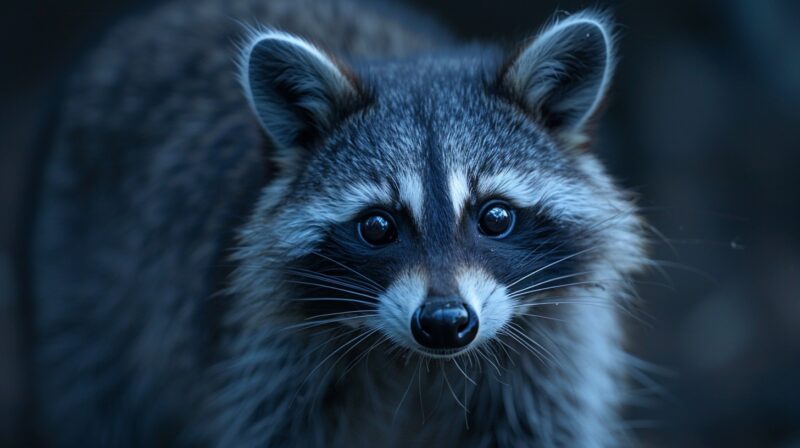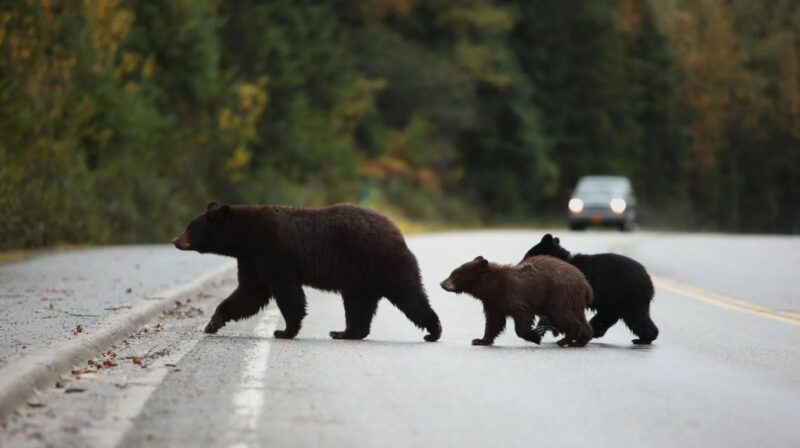Raccoons are fascinating creatures with a diet as diverse as their habitats. They’re known for their distinctive black “mask” and ringed tail, but what really sets them apart is their uncanny ability to eat just about anything.
Today, I will discuss the dietary habits of raccoons, shedding light on what fuels these adaptable animals.
Key Takeaways
- Raccoons are omnivores with a diverse diet that includes fruits, vegetables, nuts, meat, and fish, adapting their diet based on availability and season.
- They are not dedicated hunters but opportunistic feeders, preferring easy-to-catch or find food sources, including human trash when accessible.
- Urban environments have influenced raccoons’ feeding habits, leading to increased human-raccoon interactions and necessitating measures to prevent conflicts.
- Raccoons’ remarkable adaptability and intelligence in foraging highlight the importance of understanding and respecting their natural behaviors for coexistence.
The Omnivorous Diet of Raccoons
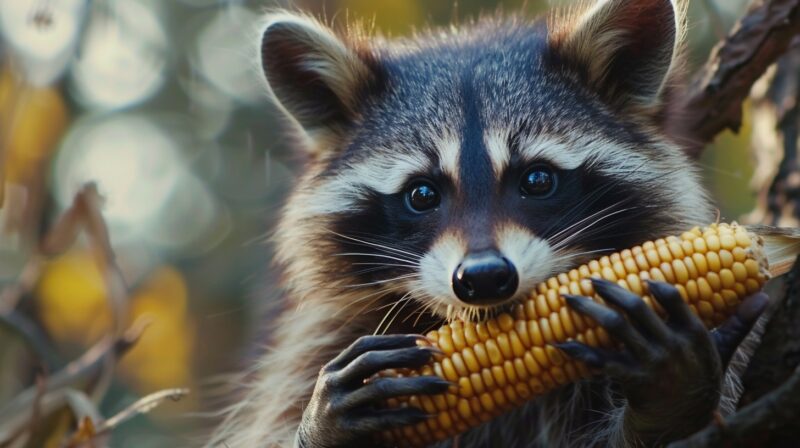
Raccoons are omnivores, which means they eat both plants and animals. Their diet is impressively varied and includes:
- Fruits and Vegetables: Apples, berries, cherries, and corn are favorites.
- Nuts and Seeds: Acorns, peanuts, and sunflower seeds provide them with energy.
- Meat and Fish: They consume frogs, fish, crayfish, insects, and occasionally small mammals. They also love to feast on grubs, which urban raccoons tend to dig up in lawns.
- Eggs: Bird and reptile eggs are a delicacy for raccoons.
- Shellfish: Clams and snails are part of their diet near water bodies.
How Do Raccoons Hunt and Forage?
Raccoons are not known for their hunting prowess. Instead, they prefer foraging for food that requires minimal effort to catch. Here’s how they find their meals:
- Using Their Paws: Raccoons have dexterous front paws, similar to human hands, which they use to grab their food.
- Nighttime Foraging: Being nocturnal, raccoons search for food at night, relying on their keen sense of smell and touch.
- Adapting to Environments: Whether it’s a dense forest or an urban backyard, raccoons adapt their diet based on available resources.
What Do Baby Raccoons Eat?
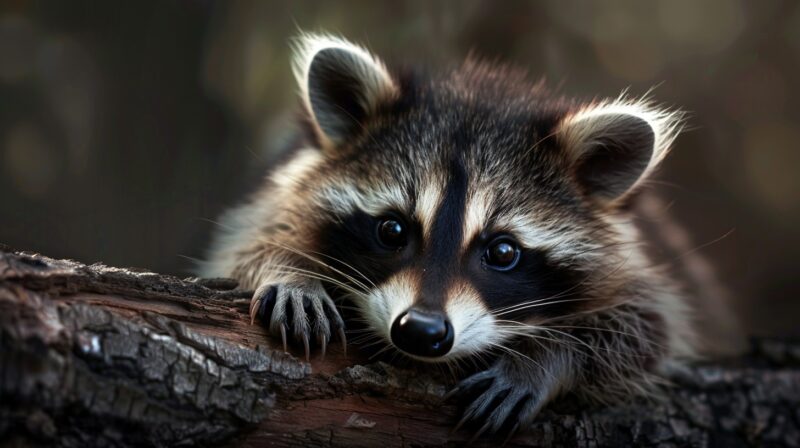
Baby raccoons, or kits, start their life drinking their mother’s milk. Around 16 weeks old, they are weaned off milk and begin to try solid foods, mimicking their mother’s diet.
Seasonal Changes in Diet
Raccoons’ diets vary with the seasons. In spring and summer, they gorge on an abundance of fruits, nuts, and animals to store fat for the winter. During the colder months, their diet shifts to whatever is available, including leftovers in urban areas.
Raccoons in Urban Areas
In cities and towns, raccoons have become skilled at navigating human environments to find food:
- Trash Cans: Unsecured garbage cans are like treasure troves for raccoons.
- Pet Food: Leftover pet food outdoors is an easy meal.
- Gardens: Raccoons raid gardens for fruits and vegetables.
The Role of Water in Raccoons’ Diet
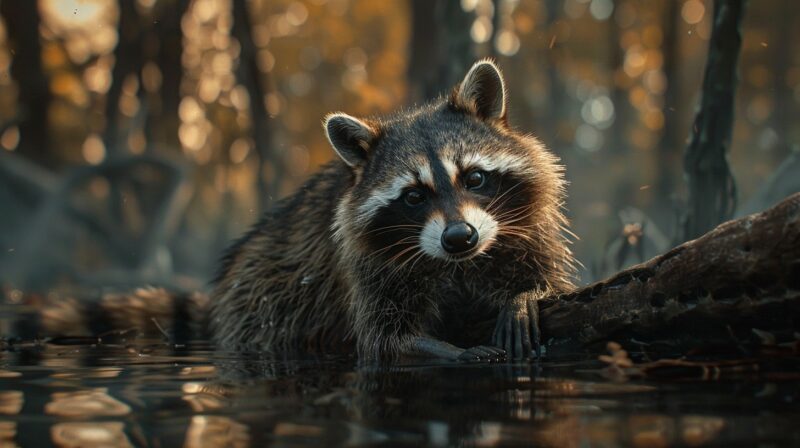
Raccoons are attracted to areas with water not just for drinking but also because water bodies are rich sources of their food.
They are skilled at catching fish, frogs, and other aquatic creatures. Moreover, raccoons often wash their food in water, a behavior that has fascinated many.
While the exact reason for this behavior is still debated among scientists, it highlights the raccoon’s complex relationship with its environment.
Do Raccoons Have Natural Predators?
Despite their adaptability, raccoons are not at the top of the food chain. They fall prey to larger mammals like coyotes, bobcats, and cougars.
In some areas, humans also pose a threat, either through hunting or vehicle accidents.
Raccoons have learned to be cautious and use their nocturnal habits to avoid many dangers.
Raccoons and Their Nutritional Needs
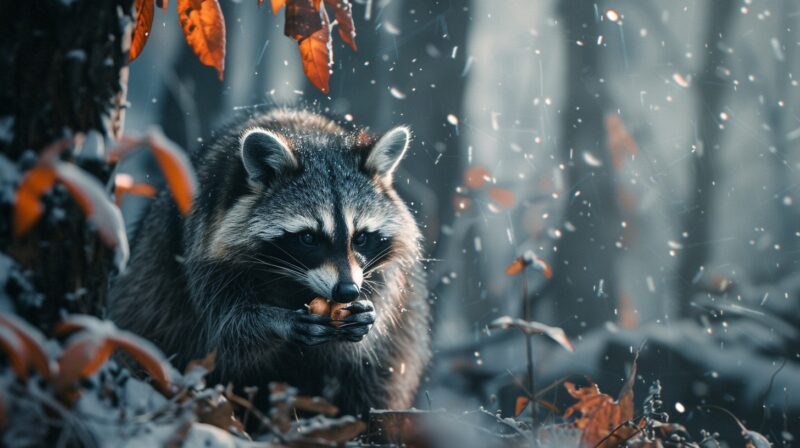
Raccoons require a balanced diet to maintain their health. In the wild, their diet naturally provides the necessary nutrients, but in urban areas, relying on human scraps can lead to nutritional imbalances.
Properly understanding what constitutes a healthy diet for raccoons is crucial for wildlife rehabilitators and those caring for them in captivity.
The Impact of Raccoons on Ecosystems
Raccoons play a significant role in their ecosystems. By consuming a wide variety of foods, they help control populations of insects, rodents, and other small prey.
Their foraging habits also contribute to seed dispersal, aiding in plant diversity.
However, in areas where raccoons have few natural predators, their populations can grow large, potentially leading to imbalances.
Living Harmoniously with Raccoons
To coexist peacefully with raccoons, it’s essential to respect their natural behaviors while taking measures to protect our properties:
- Educate the Community: Sharing knowledge about raccoons’ dietary habits can help prevent conflicts.
- Wildlife Conservation Efforts: Supporting local wildlife conservation initiatives can ensure raccoons and other wildlife have natural habitats to thrive in.
The Impact of Raccoons on Human Habitats
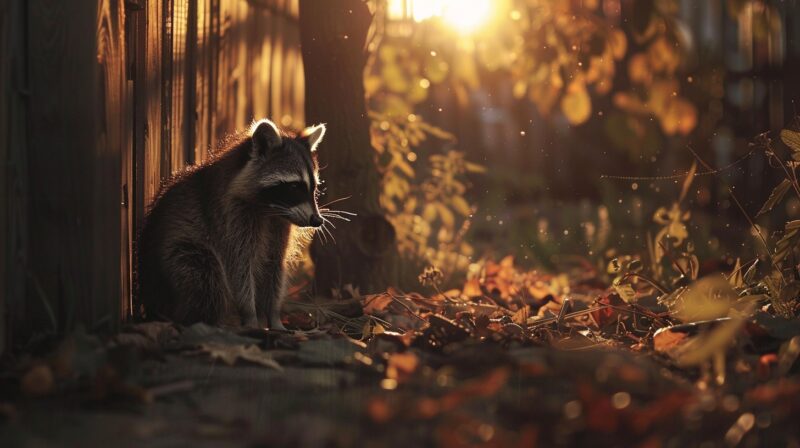
While raccoons are adaptable and can find food almost anywhere, their presence in human habitats can lead to conflicts:
- Disease Risk: Raccoons can carry diseases like rabies, which poses a risk to humans and pets.
- Property Damage: Searching for food, raccoons can damage gardens, lawns, and even enter houses.
Preventing Raccoon Problems
Homeowners can take steps to minimize conflicts with raccoons:
- Secure Garbage: Locking lids on trash cans can deter raccoons.
- Bring in Pet Food: Avoid leaving pet food outside overnight.
- Water Sources: Pools, birdbaths, and ponds can attract raccoons, so it’s wise to monitor these areas.
Raccoon Adaptability and Intelligence
Raccoons are not only versatile in their diet but also in their problem-solving skills. Their intelligence is evident in how they manage to find food.
For instance, raccoons in urban areas have been observed opening locks, bypassing obstacles, and even memorizing the timing of garbage collections.
This adaptability ensures their survival in diverse settings, from the wild to cityscapes.
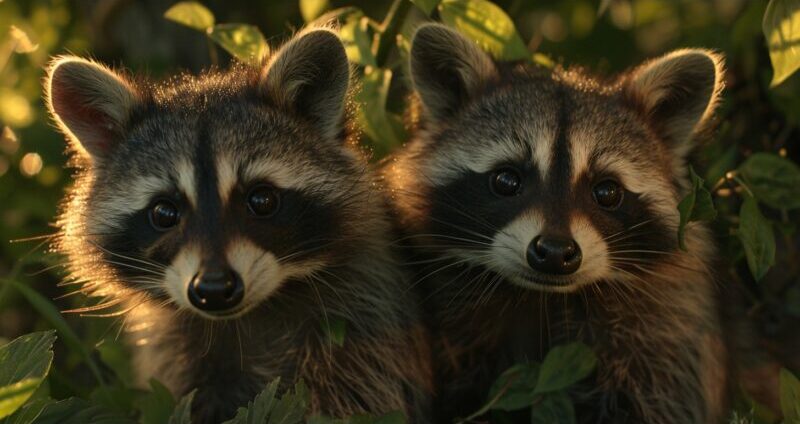
FAQs
Can Raccoons Eat Human Foods?
While raccoons can eat many things, some human foods are harmful to them, such as chocolate, onions, and certain nuts. It’s best not to feed raccoons to avoid health issues.
How Can I Keep Raccoons Away From My Property?
Besides securing food sources, installing motion-activated lights or sprinklers can discourage raccoons from entering your property.
Can raccoons eat pet food without any health risks?
Raccoons can eat pet food, but it’s not ideal for their health. Pet food lacks the variety raccoons need for a balanced diet and can lead to obesity and nutritional deficiencies.
Do raccoons have a preference for certain types of fruits or vegetables?
Raccoons tend to prefer sweet fruits like grapes, melons, and berries. They are also fond of corn and other vegetables, especially if these are readily available.
How do raccoons find food in the wild?
Raccoons use their keen sense of smell to locate food. They are also excellent climbers and swimmers, which helps them access a variety of food sources.
Can raccoons eat chocolate or sweets?
No, raccoons should not eat chocolate or excessive sweets. Chocolate contains theobromine, which is toxic to raccoons, and too much sugar can lead to health issues.
How much food does a raccoon eat in one night?
The amount varies, but a raccoon can eat the equivalent of up to 20% of its body weight in one night, especially if it’s storing fat for the winter.
Do raccoons share their food with others?
Raccoons are generally solitary when it comes to foraging and do not share their food. They can be territorial over a rich food source.
Final Words
Raccoons are amazing animals that can live in many different places, from deep woods to busy cities.
They can do this because they eat almost anything they can find.
When we learn more about what raccoons eat, we can understand how they survive and how we can share the space with them. By being kind and careful with their food, we can get along with raccoons and keep both them and us safe.
Related Posts:
- 10 Mammals That Are Herbivores - Explore Their Diets
- What Do Black Bears Eat? Insights into Their Diet
- Herbivore Teeth - Dental Adaptations for Plant-Based Diets
- What Sounds Do Raccoons Make? - Meaning and How to…
- Where to Find Raccoons in the Forest? Wildlife Encounters
- How Good Are Raccoons Senses? The Mammals Toolkit!


